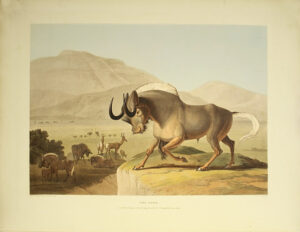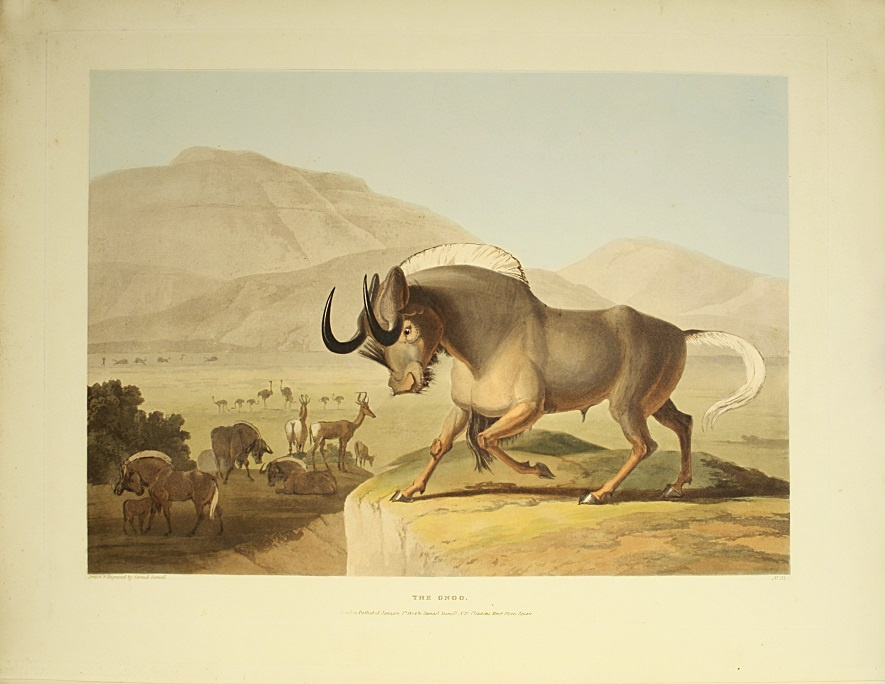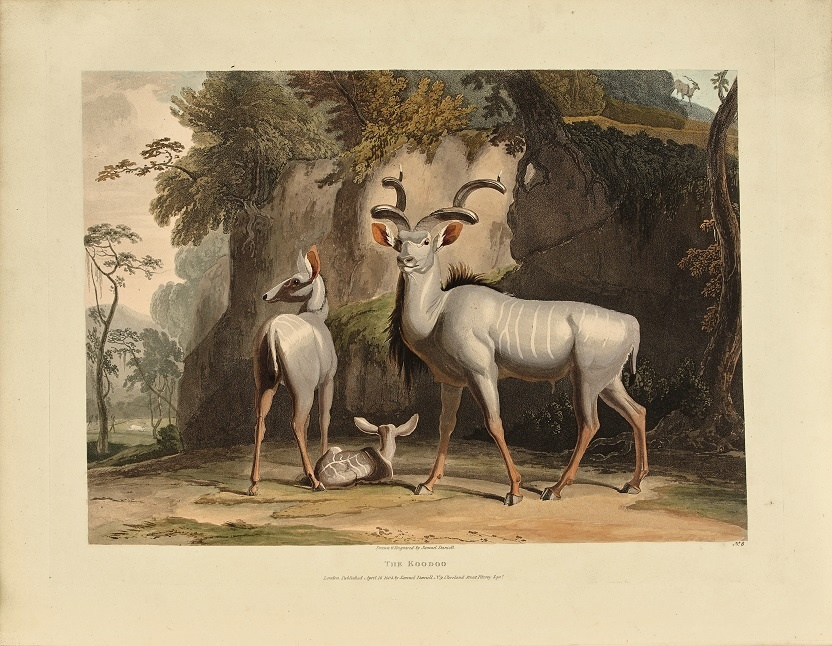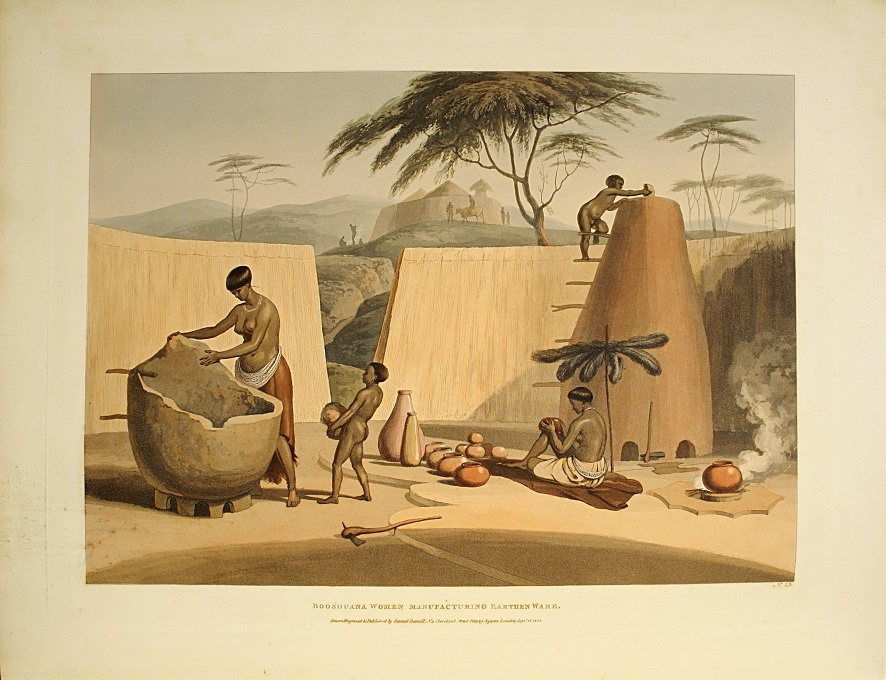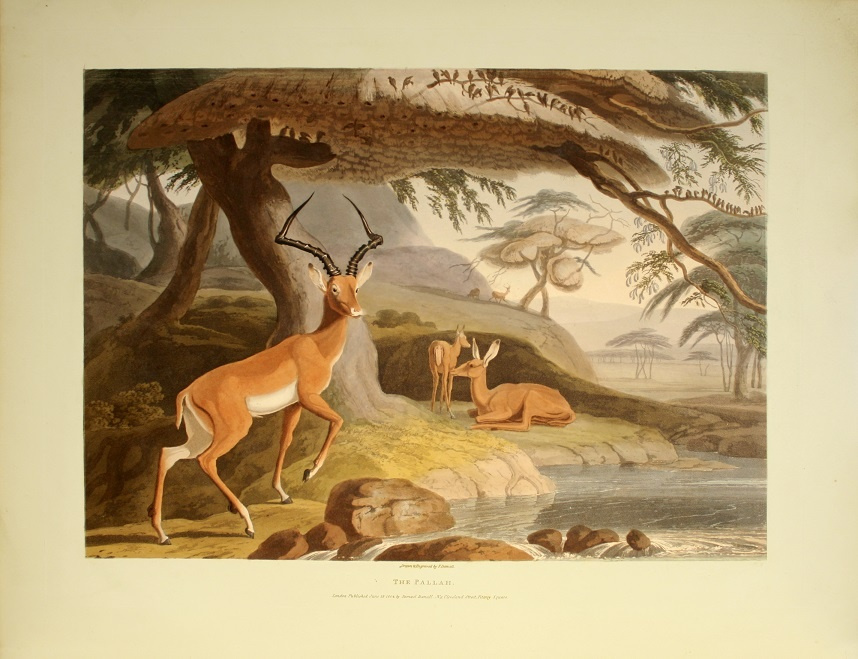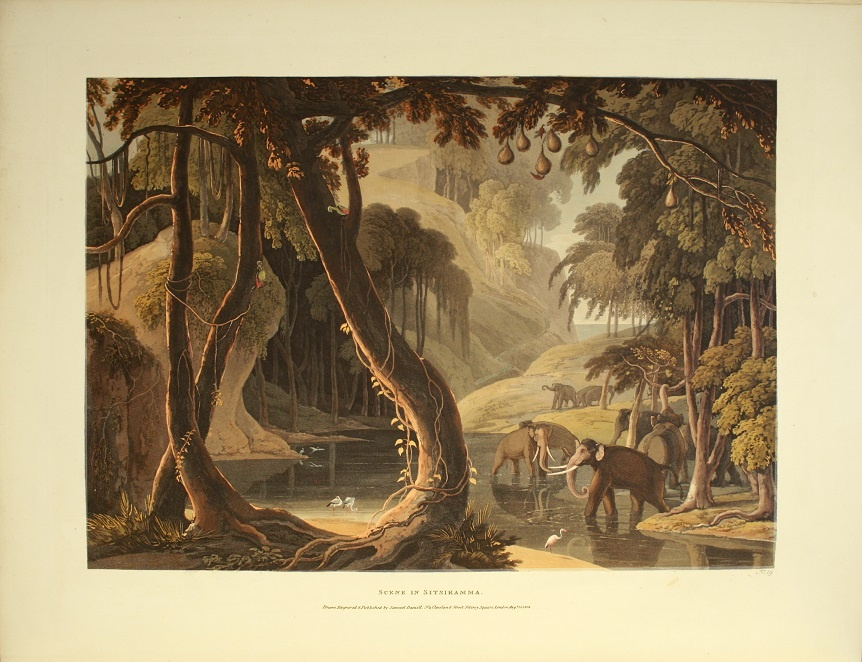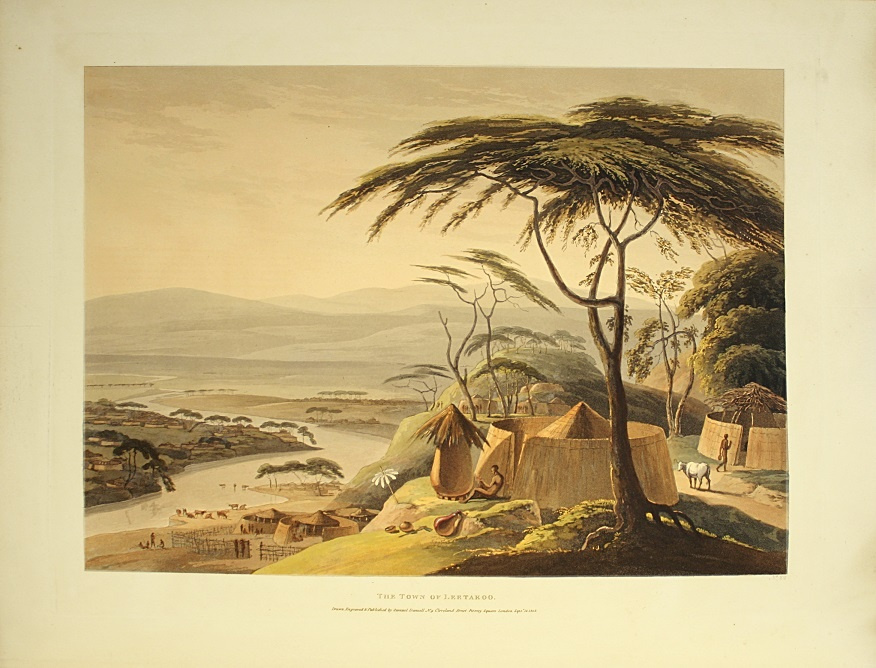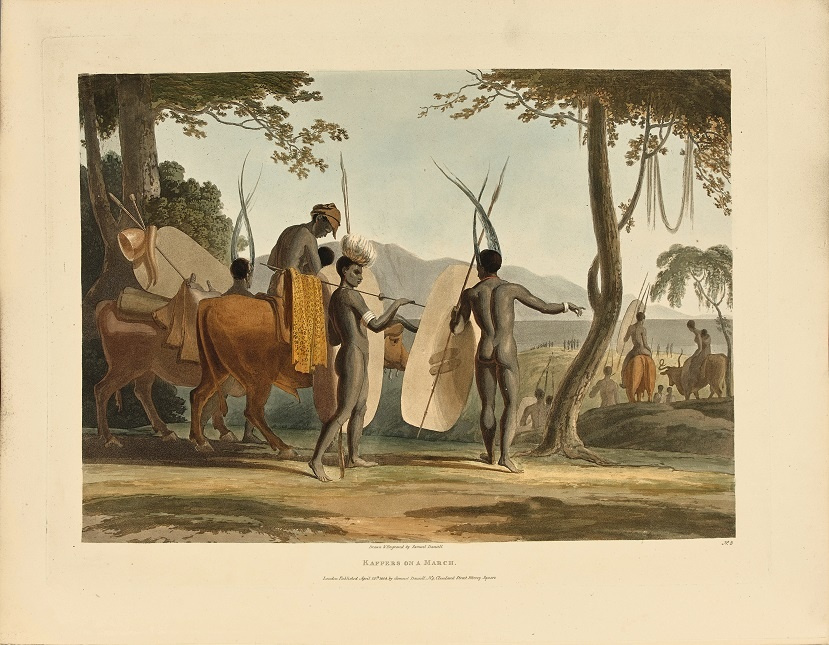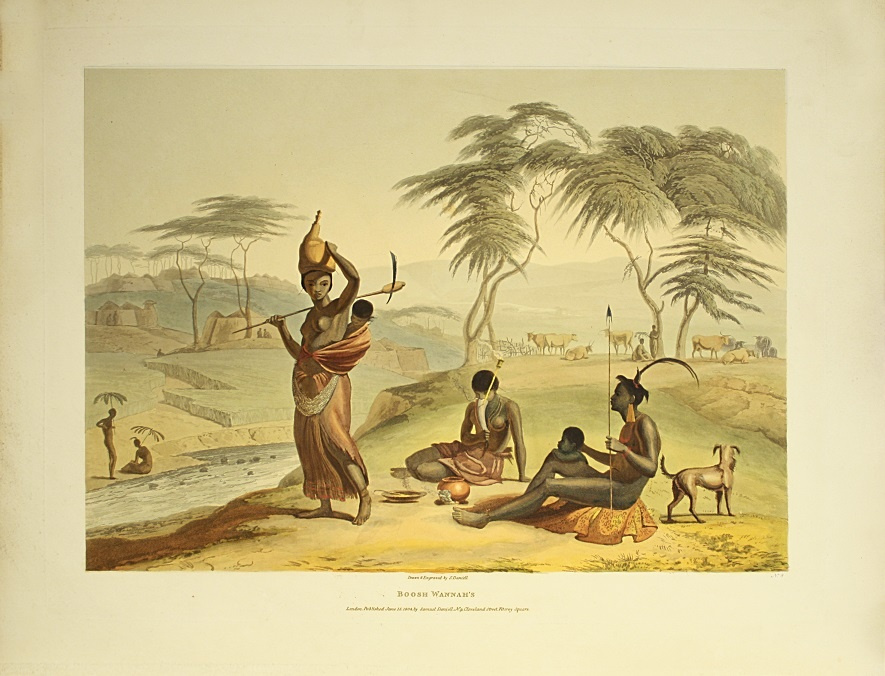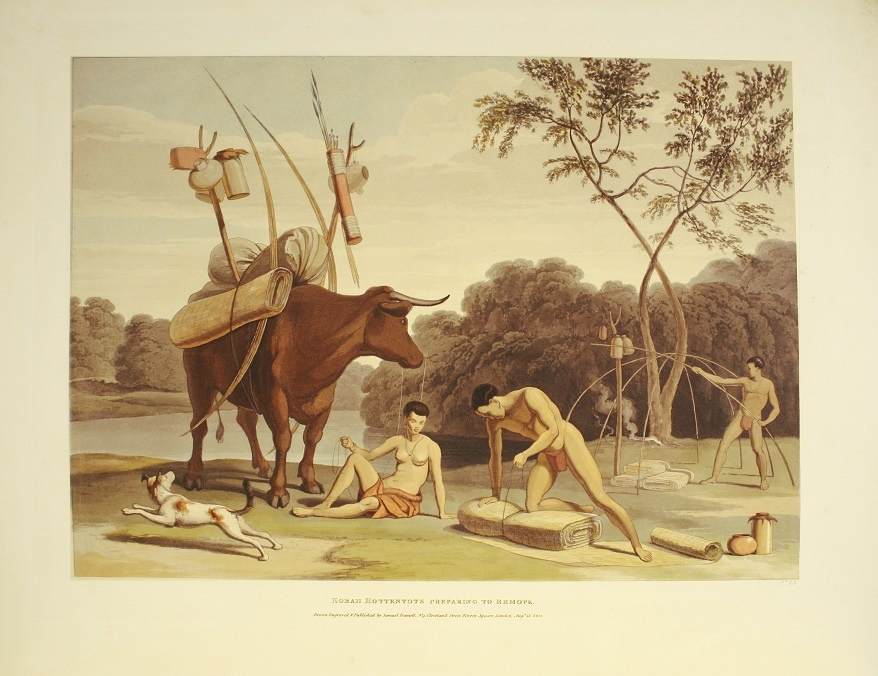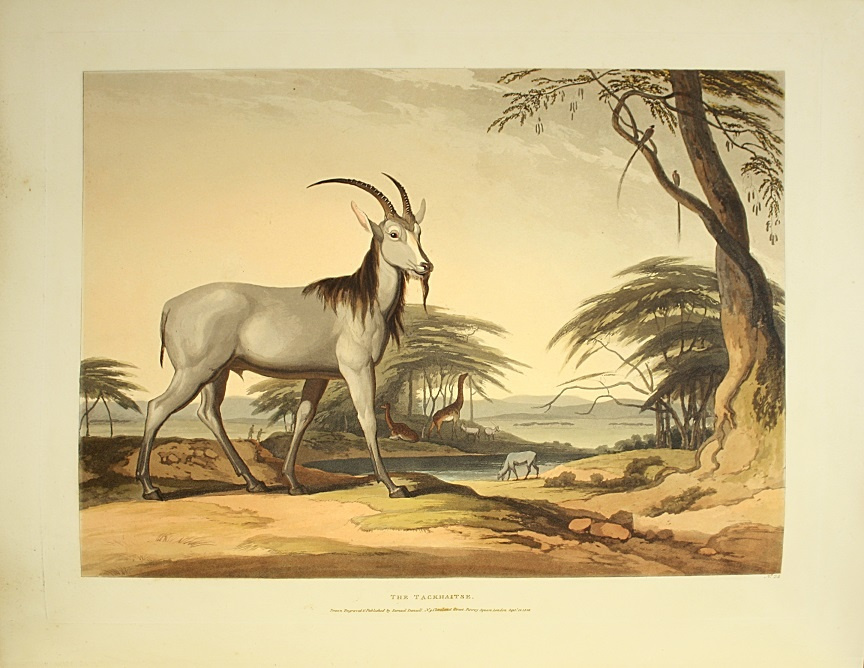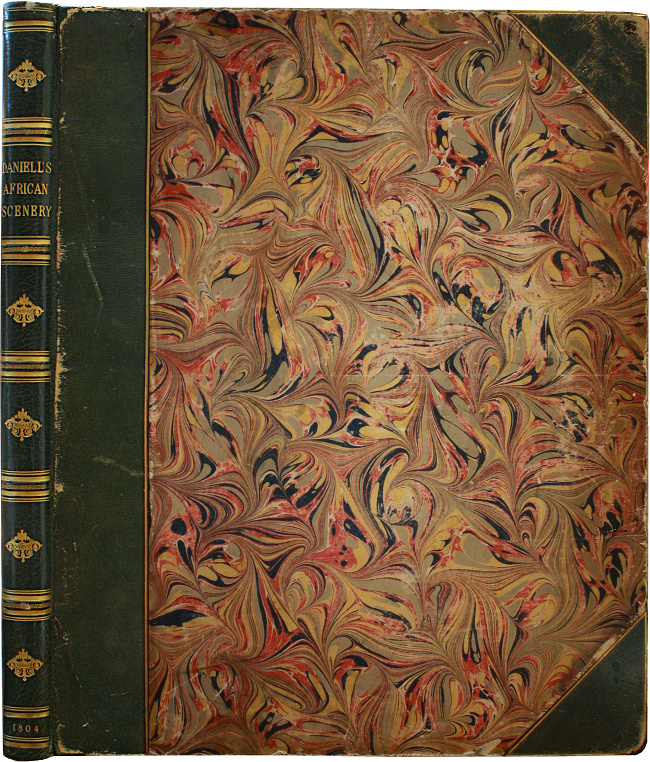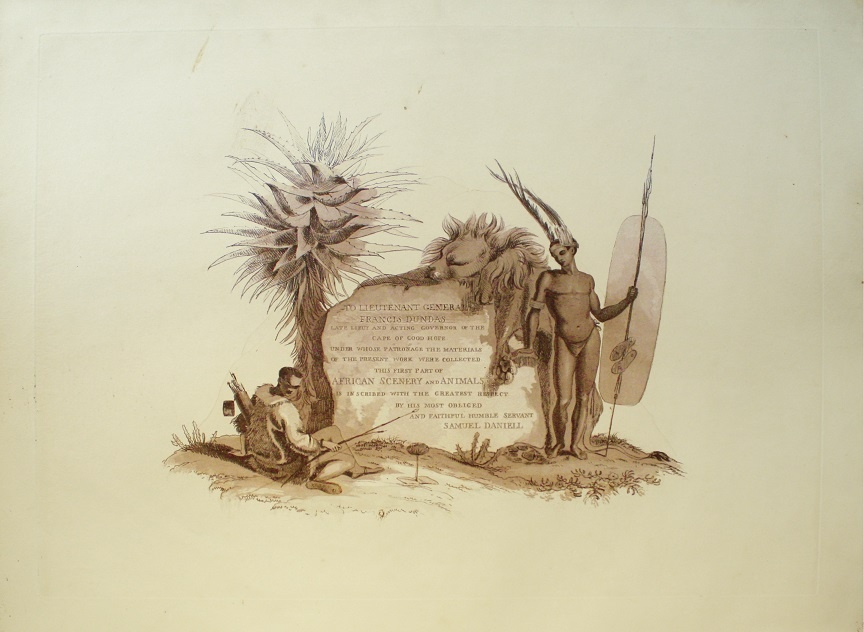S.l.n.d. [London, 1804-06].
2 tomes réunis en 1 volume in-folio de : I/ 1 titre frontispice, (5) ff. de texte et 15 planches en couleurs à pleine page ; II/ 1 frontispice, (5) ff. de texte et 15 planches en couleurs à pleine page. Soit au total, 2 titres à pleine page à l’aquatinte et 30 planches en couleur à pleine page. Planches 1 et 29 légèrement piquées. Demi-maroquin vert à coins, dos à nerfs orné de filets et fleurons dorés, tranches dorées. Qq. frottements, dos refait au XIXe siècle. Reliure de l‘époque.
Edition originale de ce somptueux ouvrage illustré sur l’Afrique du sud.
Brunet, II, 489 ; Graesse, II, p. 325 ; Gay 3136 ; Hardie 133 ; Mendelssohn, I, 411-12 ; Pridêux 245 ; Tooley 168 ; Abbey Travel 321.
"The scarcest and most valuable of the large atlas folios of South African illustration... a most magnificent work." (Mendelssohn).
Samuel Daniell (1775-1811) est un peintre et un dessinateur anglais qui arriva en Afrique du Sud le 9 décembre 1799. Il fut nommé secrétaire et artiste de l'expédition de 1801-1802 ralliant le Cap de Bonne-Espérance au Bechuanaland, menée par P.J. Truter et William Somerville. De retour en Angleterre, Daniell publia Paysages et animaux africains (1804-1805) grâce au soutien de son oncle le peintre Thomas Daniell et de son frère, le peintre et graveur William Daniell.
Il partit ensuite pour Ceylan (l'actuel Sri Lanka), où il fit des esquisses de paysages et de personnes avant de mourir de la fièvre tropicale.
Les textes accompagnant chaque illustration sont de Somerville et de Sir John Barrow, un géographe et explorateur britannique qui participa lui aussi aux premières expéditions britanniques en Afrique du Sud. Samuel Daniell dessinait des animaux dans leur habitat naturel, et son travail était apprécié pour la précision et l'attention portée aux détails. Le recueil comporte également des croquis de personnes rencontrées au cours de l'expédition et plusieurs paysages saisissants.
Thomas Sutton écrit à propos du présent ouvrage: 'The coloured plates represent local scenery, animals singly or in groups in their natural surroundings, native types, and views of kraals' (p.107).
Il poursuit: 'It may safely be said that never before had drawings of animals been presented so bêutifully in their natural scenery. Particularly fine are the plates of the gnu, springbok, and the hippopotamus. The landscapes are equally fine, those of Sitsikamma, with the interlacing jungle trees and elephants watering, the Hottentot Kraal, and the Korah Hottentot Village being lovely things. Apart from these, such plates as the Halt of a Boor's Family and Boors returning from Hunting are valuable records of êrly itinerant life in South Africa ... [Dans cet ouvrage, Samuel Daniell] shows full control over his medium: his freshness of approach is apparent; his composition and colour are full of bêuty; his animals are delicately drawn, his figure-studies full of life and sincerity and warmth' (pp.107 -111).”
“Mr. Daniell embarked for the Cape of Good Hope, whence, after some stay, he passed into the interior of Africa, collecting much valuable information on his way, and making drawings of all the objects worthy of attention, even while continually assailed by hardships, and exposed to danger in very various shapes. In this journey Mr. Daniell was accompanied by two other scientific travelers; and this small party succeeded in penetrating further to the North-East than any Europêns had previously rêched in the same direction. Of these drawings many have been engraved and given to the world in his publication entitled ‘African Scenery’, a work which, for design and execution, as well as novelty and variety of materials, has obtained very distinguished approbation. By all those who are capable of duly appreciating such labours, this volume alone would have been regarded as a testimonial not less honourable to Mr. Daniell’s zêl and industry as a lover of natural history, than to the spirit and fidelity of his pencil as an artist; but, during a residence in Africa of more than four yêrs, he was so êger in the pursuit of his favourite study, that he amassed another very large collection of drawings also illustrative of that interesting quarter of the globe…” (The Gentleman’s Magazine, vol. 82).
L’illustration somptueuse se compose de deux titres frontispices et de 30 aquatintes finement coloriées à la main à l’époque, représentant des paysages africains, des animaux dans leur environnement naturel, des habitants des villages traversés, etc.
Précieux exemplaire de ce rare et somptueux ouvrage conservé dans sa reliure de l’époque.
